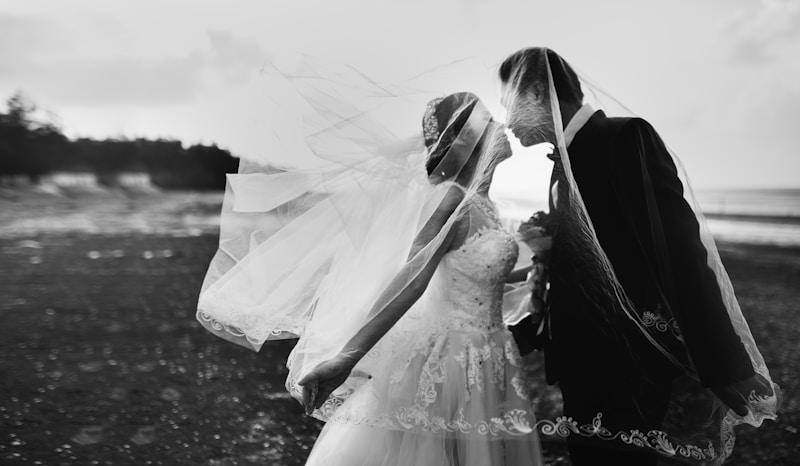The Importance of Wedding Rehearsals: A Guide to Perfecting Your Big Day
The Importance of Wedding Rehearsals: A Guide to Perfecting Your Big Day
Planning a wedding can be both an exciting and stressful experience. Among the many details to consider, one aspect that is often overlooked is the wedding rehearsal. This event plays a crucial role in ensuring that the big day runs smoothly. In this article, we will explore the importance of wedding rehearsals, how to plan them effectively, and some tips to make the most out of your rehearsal day. We will also touch on related concerns such as common rehearsal mistakes, essential items to bring, and potential questions you may have. Let's dive in!
Why Wedding Rehearsals Matter
Wedding rehearsals are not just a mere formality; they serve several important purposes that contribute to the overall success of the wedding day. Here are some key reasons why wedding rehearsals matter:
| Purpose | Description |
| Familiarization | The rehearsal allows the bridal party, family, and officiant to get familiar with the venue and the schedule of events. This helps reduce anxiety on the wedding day. |
| Coordination | It enhances coordination among participants, including the timing of entrances, exits, and any special rituals or performances. |
| Problem-Solving | By identifying potential issues during the rehearsal, such as sound problems or layout issues, adjustments can be made ahead of time. |
| Building Connections | The rehearsal serves as an opportunity for the families and bridal party to bond before the big day, fostering positive relationships. |
| Confidence Boost | Having gone through the ceremony flow, everyone involved will feel more confident and relaxed on the actual day. |
How to Plan Your Wedding Rehearsal
Planning a wedding rehearsal may seem straightforward, but there are several aspects to consider to ensure it is effective. Here are some steps to guide you:
1. Schedule Your Rehearsal
Typically, the wedding rehearsal takes place one or two days before the wedding. Coordinate with the venue and the officiant to find a time slot that works for everyone involved. If you're having a religious ceremony, consult with your officiant about the most suitable time for both practice and any necessary traditions.
2. Make a Guest List
Decide who should be present at the rehearsal. Usually, this includes the bridal party, immediate family members, and anyone else involved in the ceremony, such as readers or musicians. Keep it small and intimate to streamline the rehearsal process.
3. Prepare an Itinerary
Create a detailed timeline for the rehearsal, specifying who does what and when. Share this itinerary with everyone attending so they are aware of their roles. Here’s a simple outline you might consider:
- Greeting and introductions
- Walkthrough of the ceremony sequence
- Practice vows and readings
- Discuss logistics (seating arrangements, timing)

4. Choose the Right Venue
If possible, hold the rehearsal at the ceremony venue, as this allows everyone to become comfortable in the setting. If that’s not feasible, consider a location that resembles the wedding venue in layout or ambiance.
5. Make It Fun
A wedding rehearsal doesn't have to be all business. Consider enhancing the atmosphere with light refreshments or even a celebratory toast afterward. This sets a positive tone and helps everyone feel more relaxed.
Common Mistakes to Avoid
Even with a solid plan in place, there are common pitfalls that couples often encounter during their wedding rehearsals. Here’s a list to help you steer clear of them:
1. Skipping the Rehearsal
While it may seem unnecessary, forgoing the rehearsal can lead to chaos on the wedding day. It’s essential to ensure that everyone knows their roles and understands the ceremony flow.
2. Not Communicating Effectively
Make sure to communicate with all involved parties ahead of time. Clear instructions will minimize confusion and anxiety on the actual day.
3. Overloading the Schedule
While it may be tempting to fit in a lot during the rehearsal, remember that the primary goal is familiarity. Keep it focused on essential elements, so participants don’t feel overwhelmed.
4. Forgetting Essential Items
Don’t forget critical items like the marriage license, rings, or any necessary props for the ceremony. Keep a checklist handy to avoid last-minute surprises.
Conclusion: The Importance of Wedding Rehearsals
In summary, wedding rehearsals play a vital role in ensuring that your big day goes off without a hitch. By familiarizing everyone with their roles, coordinating the ceremony flow, and addressing any potential issues, you set the stage for a memorable occasion. Avoid common mistakes by planning effectively and maintaining open communication with your guests and bridal party.
Ultimately, the importance of wedding rehearsals cannot be understated. They not only serve practical purposes but also bring together the people who love and support you in preparation for one of the most significant moments of your life. Make the most of this special time, cherish the connections made, and prepare to celebrate your love on your wedding day!
Remember to consider your personal circumstances as you plan your rehearsal. Whether you're planning a large, extravagant event or a small, intimate gathering, each rehearsal can be tailored to fit your vision and needs. Happy planning!
